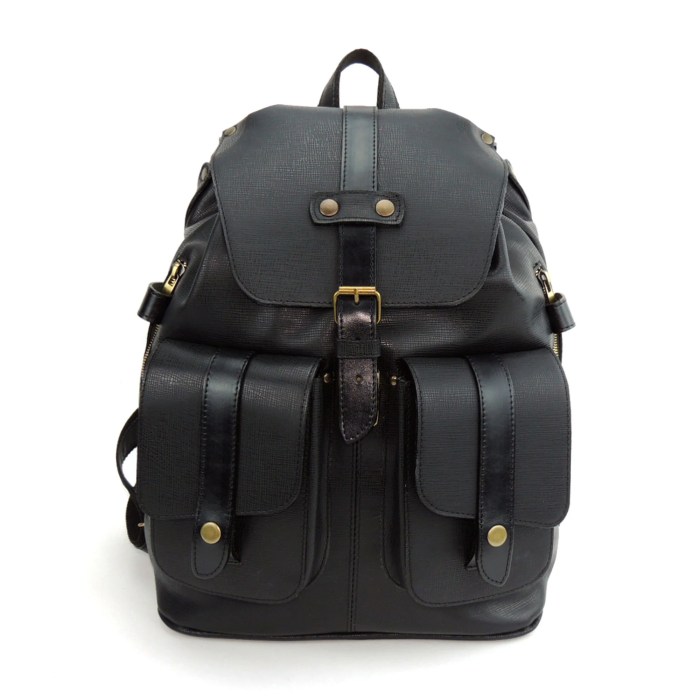Holiday party icks hosts never want to see are those little things that can quickly turn a festive gathering into a stressful experience. From disruptive guests to food-related meltdowns, decorating disasters, and communication clashes, there are a surprising number of potential pitfalls. This post dives deep into the common holiday party problems that hosts dread, offering insights into why they happen, how to prevent them, and strategies for handling them gracefully.
Imagine the warm glow of holiday cheer, the festive decorations, the delicious food, and the joy of spending time with loved ones. But what if something goes wrong? This guide helps you navigate the potential hiccups that could ruin the magic of your holiday gathering. We’ll cover everything from unwanted guest behaviors to unforeseen problems, equipping you with the tools to host a memorable and stress-free celebration.
Unwanted Guest Behaviors

Holiday gatherings are meant to be joyous occasions, filled with laughter and good company. However, sometimes, a few unwelcome behaviors can quickly dampen the festive spirit. Understanding these behaviors and how to address them can transform a potentially awkward situation into a more enjoyable one for everyone.
Ugh, holiday party disasters! Hosts dread things like a food shortage, a lack of seating, or a complete power outage. But, to combat those seating woes, investing in a good drop leaf table like the ones at best drop leaf tables can be a game-changer. They’re perfect for extra guests, and can help avoid the awkward moments where everyone is crammed around a tiny table, or worse, standing around the buffet! So, next time you’re planning a holiday get-together, consider a flexible seating solution to prevent those potential holiday party pitfalls.
Types of Unwanted Guest Behaviors
Understanding the different types of unwanted guest behaviors is crucial for addressing them effectively. Guests who exhibit disruptive, inconsiderate, or overly-demanding behaviors can significantly impact the host’s experience and the overall atmosphere of the party. These behaviors often stem from various underlying causes, such as lack of awareness, poor social skills, or even personal issues.
Disruptive Behaviors
These behaviors often disrupt the flow of the party, causing discomfort and annoyance for the host and other guests. Loud conversations, boisterous laughter, or disruptive music choices are examples of such behaviors. Hosts often dislike disruptive behaviors because they detract from the atmosphere of the party, making it difficult for other guests to enjoy themselves or for the host to relax and enjoy the festivities.
They can also lead to strained relationships with other guests. Addressing such behaviors involves tact and diplomacy. A gentle reminder or a private conversation with the disruptive guest can often be effective.
Inconsiderate Behaviors
Inconsiderate behaviors often stem from a lack of awareness or respect for others’ boundaries. Examples include failing to contribute to the party, hogging conversation, or leaving a mess behind. Hosts dislike inconsiderate behaviors because they create an uncomfortable or strained atmosphere. The host might feel obligated to clean up messes, apologize to other guests, or spend time mediating conflict that could have been avoided.
It is important for hosts to establish clear expectations and guidelines for the party, and for guests to be mindful of these guidelines. Communication and setting clear boundaries are key.
Overly-Demanding Behaviors
Overly-demanding behaviors often involve guests who expect special treatment or excessive attention from the host. Examples include requesting specific dishes or drinks, or making repeated requests for favors or help. Hosts dislike these behaviors because they can feel overwhelming and stressful. The host might feel obligated to fulfill every request, even if it compromises the host’s ability to enjoy the party or attend to other guests.
Setting clear boundaries and politely but firmly declining excessive requests are important.
Table: Unwanted Guest Behaviors, Causes, and Solutions
| Behavior | Possible Causes | Potential Solutions |
|---|---|---|
| Disruptive | Lack of awareness, poor social skills, intoxication | Gentle reminder, private conversation, redirecting attention, offering alternative activities |
| Inconsiderate | Lack of awareness, selfishness, poor social skills | Clear communication of expectations, setting boundaries, offering help, tactful confrontation |
| Overly-demanding | Self-centeredness, entitlement, unmet needs | Clear communication of limits, politely but firmly declining, offering alternative options |
Food and Drink Related Issues
Hosting a holiday party can be a joyous occasion, but it can also be fraught with potential food and drink related challenges. Guests’ preferences and dietary needs can easily clash with a host’s vision for the party, leading to frustration and even avoidable conflict. Understanding these potential issues and proactively planning for them can significantly improve the party experience for everyone.Addressing diverse dietary needs and preferences in a menu doesn’t have to be overly complicated or require an elaborate buffet.
A thoughtful approach, combined with clear communication with guests, can create a welcoming and inclusive environment for everyone. Planning for potential food waste and overconsumption is also crucial for hosts to avoid unnecessary expense and environmental impact.
Common Food and Drink Issues at Parties
Understanding the common issues that arise regarding food and drink selections at holiday parties is essential for hosts to plan effectively. Guests may unintentionally consume more than they can comfortably manage, leading to overconsumption and potential waste. Some guests might have specific dietary needs or allergies that need careful consideration. Furthermore, there can be misunderstandings about portion sizes or the types of food offered, leading to guests’ discomfort or disappointment.
Creating an Inclusive Menu
A thoughtful approach to creating a menu that caters to diverse dietary needs and preferences can turn a potential challenge into a strength. This can be achieved by offering a variety of options that address different tastes and restrictions. A well-balanced menu with choices for various diets and preferences is a great way to make guests feel welcome and respected.
For example, including vegetarian, vegan, gluten-free, and dairy-free options can accommodate a broader range of dietary needs.
Managing Food Waste and Overconsumption
Overconsumption at a party can lead to significant food waste. A smart approach to portion control and mindful menu planning can greatly reduce food waste and unnecessary spending. Offer smaller, more manageable portions of popular dishes to encourage mindful consumption. Consider serving dishes in a way that promotes portion control, like using individual bowls or smaller plates.
Managing Allergies and Dietary Restrictions
Managing allergies and dietary restrictions at a party requires careful planning and communication. Clearly labeling dishes with ingredients and any potential allergens is crucial. For guests with specific dietary needs, offer alternative options or communicate clearly about potential cross-contamination. A pre-party survey can also be beneficial to understand guest dietary needs, and a well-labeled menu can help alleviate concerns and encourage safe choices.
Managing Food and Drink Issues: A Practical Guide
| Problem | Potential Solutions | Prevention Methods |
|---|---|---|
| Overconsumption and Food Waste | Offer smaller portions, portion control tools (individual bowls), and visually appealing presentation of food. Provide alternatives to popular dishes (e.g., smaller plates). | Plan menu items with realistic portion sizes based on the expected number of guests. Offer a variety of options to cater to different tastes and preferences. |
| Dietary Restrictions (allergies, intolerances) | Clearly label dishes with ingredients, including potential allergens. Provide alternative options for guests with specific needs (e.g., gluten-free bread, dairy-free desserts). | Conduct a pre-party survey to understand guest dietary needs. Ensure clear communication with guests regarding potential cross-contamination issues. |
| Guest preferences | Offer a variety of dishes that appeal to different tastes and preferences. Have some dishes with different levels of spice. | Plan your menu to include a range of tastes and styles. Offer a mix of appetizers, main courses, and desserts to ensure a balanced selection. |
Decorating and Setup Issues: Holiday Party Icks Hosts Never Want To See
Throwing a holiday party is a blast, but the setup can sometimes be more challenging than anticipated. From accidental damage to misplaced decorations, various snags can mar the festive mood. Understanding potential problems beforehand can help hosts prevent unwelcome incidents and maintain a smooth flow of the party.
Guest-Induced Damage to Decorations, Holiday party icks hosts never want to see
Guests, even well-meaning ones, can sometimes inadvertently cause damage to decorations. A misplaced drink, an energetic dance move, or a child’s curious touch can lead to broken ornaments, tangled streamers, or a crumpled banner. This is a common issue that hosts should be aware of.
- Guests may accidentally knock over centerpieces or place settings, causing damage to delicate decorations.
- Children playing with decorations can easily break fragile items like glass ornaments or pottery.
- Overzealous dancing or boisterous games can lead to decorations getting tangled or pulled down.
- Guests might move or rearrange decorations without permission, altering the planned aesthetic and potentially damaging the setup.
Party Cleanliness and Upkeep
Maintaining a clean and tidy party environment is crucial. Guests’ actions can easily lead to spills, dropped food, or scattered trash. Effective upkeep is critical to ensuring a comfortable and pleasant atmosphere for all.
- Spilled drinks or food can create sticky messes on tables or floors, requiring extra cleaning effort.
- Guests may not dispose of their trash properly, leading to overflowing bins or scattered litter.
- A lack of designated areas for coats, bags, and shoes can result in clutter and a messy appearance.
- Lack of supervision, especially around children, can increase the risk of accidents and spills, which need to be addressed quickly.
Potential Decorating and Setup Issues
A host’s perspective provides a valuable insight into the potential pitfalls of a party setup. Anticipating problems can be key to preventing issues from escalating.
- Guests misplacing decorations or rearranging the party’s visual aesthetic without permission, impacting the intended theme.
- Unintentional damage to decorations from accidental knocks or bumps, leading to broken or damaged items.
- Guests’ activities causing disruptions to the setup, such as overcrowding or movement around the party space.
- Food or drink spills creating messes on tables, floors, or other surfaces, requiring immediate cleanup.
- Guests leaving trash or debris around the party area, which can affect the overall cleanliness of the event.
Mitigation Strategies
Planning ahead can help hosts minimize issues and ensure a smooth and enjoyable party experience. Clear communication and thoughtful preparation can make a big difference.
- Use sturdy, well-placed decorations that are less prone to damage.
- Provide clear guidelines for guests regarding the party’s setup and decorations.
- Have a designated cleanup crew or allocate specific areas for guests to put their belongings.
- Employ clear signage and guidelines to maintain cleanliness.
- Ensure adequate supervision and appropriate resources to address any incidents promptly.
Table of Potential Problems, Solutions, and Preventative Measures
| Problem | Solution | Preventative Measure |
|---|---|---|
| Guest-induced damage to decorations | Have backup decorations or repair kits readily available. | Use sturdy decorations and place them in a way that minimizes risk. |
| Party cleanliness issues | Designate trash receptacles and provide clear instructions on disposal. | Provide adequate trash receptacles and cleaning supplies. |
| Guests misplacing decorations | Clearly mark the intended placement of decorations. | Use designated areas for specific decorations. |
| Food or drink spills | Have disposable placemats or tablecloths available. | Provide spill-resistant materials for surfaces. |
| Guests causing disruptions | Establish clear boundaries and manage guest flow. | Have a designated area for gatherings. |
Guest Interactions and Communication

Holiday parties are meant to be joyous gatherings, filled with laughter and connection. However, miscommunication and awkward interactions can quickly dampen the festive spirit. Understanding potential communication pitfalls and establishing clear expectations can transform a potentially stressful situation into a memorable celebration. Effective communication between hosts and guests is crucial for a smooth and enjoyable experience for everyone.
Common Communication Problems
Guests often exhibit communication challenges during holiday gatherings. Unintentional rudeness, disagreements, and a lack of consideration for the host’s efforts can create discomfort. For instance, arriving late without notice or failing to contribute to conversation can be off-putting. Similarly, engaging in overly personal or sensitive discussions without tact can be disruptive. These behaviors, though sometimes unintentional, can create a negative atmosphere.
Importance of Clear Communication and Expectations
Establishing clear expectations from the outset is essential. Communicating the party’s atmosphere, dress code, and any specific requests beforehand can prevent misunderstandings. Hosts should also clearly Artikel their limitations and preferences regarding noise levels, guest arrival times, and topics of conversation. This proactive approach fosters a more harmonious and enjoyable experience for everyone. Furthermore, discussing party goals with guests, for instance, an emphasis on friendly conversation rather than competitive games, can enhance shared understanding.
Ugh, holiday party disasters! Hosts dread things like a power outage or a spilled punch bowl, but did you know that even tiny pests like weevils can ruin the festive cheer? A tiny weevil, a type of beetle, can wreak havoc on stored food, which can completely spoil a party, especially if it’s a potluck. So, next time you’re hosting, check your ingredients carefully, as what is a weevil and their potential for party-crashing damage can be a real problem.
These little critters are definitely something hosts want to avoid at all costs.
Strategies for Handling Difficult Conversations
Dealing with difficult conversations requires tact and diplomacy. Actively listening to the guest’s perspective, acknowledging their feelings, and calmly expressing your own concerns are vital. Using “I” statements to express your feelings, such as “I feel a little overwhelmed when guests arrive late,” can be more constructive than blaming statements. Using a calm and respectful tone is paramount.
Holiday parties are supposed to be fun, but some hosts make them a total disaster with their home organization. Cluttered spaces and awkward layouts can seriously dampen the festive mood. Poorly planned storage solutions, like those found in many instances of bad home organizing design , can make a party feel cramped and uncomfortable. This all adds up to a less-than-ideal experience for guests and ultimately a stressful situation for the host, making it the worst holiday party ever.
Avoiding accusatory language and focusing on solutions can lead to positive outcomes. For example, if a guest is consistently disrupting conversations, gently redirecting the conversation to another topic can help without making them feel singled out.
Setting Appropriate Boundaries and Expectations
Setting boundaries is crucial for maintaining a positive atmosphere. Guests should be aware of the host’s comfort levels and the overall tone of the party. Communicating these boundaries through invitations or informal discussions can help avoid misunderstandings. For instance, informing guests about the party’s quiet hours or preferences for specific conversations can create a comfortable environment for everyone.
Furthermore, guests should respect the host’s need for personal space and time, allowing for downtime and relaxation.
Communication Styles and Impact on Party Dynamics
| Communication Style | Description | Impact on Party Dynamics |
|---|---|---|
| Assertive | Clear, direct, and respectful communication. Expressing needs and opinions openly but considering others’ perspectives. | Creates a positive and productive atmosphere. Fosters open communication and mutual understanding. |
| Passive | Avoiding conflict, often putting others’ needs before their own. May not clearly express their feelings or needs. | Can lead to resentment and unspoken tensions. May not effectively address concerns, leading to potential issues. |
| Aggressive | Dominating conversations, expressing opinions forcefully, often disregarding others’ feelings. | Creates a hostile environment. Can alienate guests and disrupt the party’s harmony. |
| Passive-Aggressive | Indirectly expressing dissatisfaction or resentment. May use sarcasm or subtle criticism. | Can create tension and discomfort without directly addressing issues. Difficult to resolve underlying problems. |
Understanding these styles helps hosts to anticipate and respond to different communication patterns effectively, ensuring a more enjoyable and positive party experience for all involved.
Unforeseen Problems
Holiday parties, while meant to be joyous occasions, can sometimes be derailed by unexpected events. From minor inconveniences to major disruptions, being prepared for potential issues is key to maintaining a positive and memorable experience for everyone. This section delves into the unpredictable, equipping hosts with strategies to navigate unforeseen circumstances and keep the festive spirit alive.
Potential Technical Malfunctions
Technical glitches can disrupt a party, from a malfunctioning sound system to a sudden power outage. These issues can range from minor annoyances to major problems that require immediate attention. Understanding the potential causes and having backup plans can help mitigate these problems. For example, a flickering light can be caused by a faulty bulb or an overloaded circuit.
Consider having a generator or backup power source on hand, as well as extra bulbs and extension cords.
Guest Conflicts and Disagreements
Disagreements among guests can arise unexpectedly, creating tension and disrupting the festive atmosphere. These conflicts can stem from personal differences, misunderstandings, or even disagreements about the party itself. A calm and collected approach is crucial. Actively listening to both sides of the conflict and mediating the situation can help diffuse the situation and maintain a peaceful atmosphere.
Unexpected Guest Arrivals or Departures
Unforeseen guest arrivals or departures can create logistical challenges. If more guests arrive than expected, ensuring adequate food, drinks, and seating arrangements becomes critical. On the other hand, if guests unexpectedly depart, it might mean fewer hands to help with cleanup or other tasks. Planning for potential fluctuations in guest numbers is important for avoiding issues. Having a flexible approach to accommodating extra guests or dealing with unexpected departures can prevent major disruptions.
Food and Drink Related Issues
Unexpected food or drink-related problems can range from allergies to unexpected shortages. Knowing the dietary restrictions of guests in advance and having a variety of options can mitigate potential issues. Unexpected food spoilage or shortages require quick thinking. Having extra supplies on hand or alternatives to offer guests is essential. Keeping track of food and drink levels throughout the party can prevent shortages and ensure everyone has enough.
Table of Unforeseen Party Problems
| Problem | Potential Severity | Suitable Response |
|---|---|---|
| Power outage | Moderate to High | Have a backup generator or portable power source ready. Inform guests of the situation and offer alternative entertainment or activities. |
| Guest conflict | Low to Moderate | Mediate the situation calmly and privately. Offer a distraction or a way to de-escalate the situation. |
| Food shortage | Low to Moderate | Assess the situation and order more food if necessary. Offer alternative food options to those affected. |
| Unexpected guest arrival | Low to Moderate | Assess the situation. Have extra seating, food, and drinks on standby. |
| Malfunctioning sound system | Low | Have a backup music source ready, such as a portable speaker or a playlist on a phone. |
Party Planning and Preparation
Throwing a memorable party requires meticulous planning. A well-organized approach can transform a potentially stressful event into a joyous celebration. Conversely, poor planning can lead to significant guest dissatisfaction and a less-than-ideal experience for everyone involved. Understanding common pitfalls and proactive measures is key to hosting a successful party.
Common Party Planning Errors
Poor planning often stems from neglecting essential steps. Overlooking crucial details can lead to frustration and inconvenience for guests. For instance, failing to consider dietary restrictions or allergies can create significant issues. Similarly, an inadequate guest list can lead to overcrowding or a lack of space for comfortable socializing. Not addressing parking or transportation options can cause problems for attendees arriving by car.
Importance of Pre-Party Planning and Communication
Effective communication with guests is paramount. Clear communication regarding the party’s theme, dress code, and any special requests can help guests prepare appropriately. Providing guests with essential information, like the date, time, location, and any specific instructions for parking or transportation, is crucial. Sending out invitations well in advance allows guests ample time to make arrangements and confirm their attendance.
Common Mistakes in Preparing for the Party
Hosts often make mistakes in the preparation process. Failing to adequately prepare the party venue, including ensuring sufficient lighting, seating, and decorations, can lead to a less-than-ideal atmosphere. Insufficient food or beverage provisions can leave guests feeling hungry or thirsty, negatively impacting the party experience. Insufficient staff to handle large crowds or complex tasks can also lead to problems, especially during peak hours.
Preventative Measures to Avoid Issues During Party Preparation
Proactive measures can minimize potential problems. Conducting a pre-party site visit can identify any issues, like lighting or seating arrangements, that need addressing. Having a detailed food and beverage plan can ensure that sufficient quantities are available and cater to any dietary restrictions. Ensuring enough staff to assist with food service, drink refills, or managing crowds can prevent wait times and ensure a smooth experience for everyone.
Organized List of Party Planning Steps
A structured approach to planning can significantly reduce potential problems.
- Establish a clear budget. A budget helps control costs and prevents overspending, avoiding financial strain. Examples include setting aside funds for decorations, food, and beverages.
- Create a detailed guest list. An accurate guest list aids in determining the necessary resources. This includes confirming guest dietary requirements, allergies, and any special needs to accommodate these.
- Choose a date, time, and location. These factors influence the number of guests and the necessary preparations. Consider time zones and potential conflicts when deciding the date and time.
- Develop a detailed menu. Planning menus for various dietary needs and allergies is essential. Ensuring sufficient quantities of food and beverages is vital for catering to the anticipated guest count.
- Plan decorations and ambiance. Decorations contribute to the party’s overall atmosphere. Choosing appropriate music and lighting can further enhance the experience.
- Secure necessary permits and licenses. Checking for necessary permits or licenses for hosting a party is important to avoid legal issues.
- Arrange for transportation. Ensure adequate transportation options are available for guests who might need help getting to or from the venue.
- Confirm RSVPs and communicate with guests. Promptly following up on RSVPs and communicating with guests regarding the party details is essential.
- Prepare the party area. Set up tables, chairs, and decorations before the party begins. Consider the lighting, music, and ambiance for an enjoyable atmosphere.
- Prepare food and drinks. Arrange food and drinks in advance, keeping in mind dietary needs and preferences.
- Have a backup plan. Have a plan in case of unforeseen circumstances, such as inclement weather or unexpected guest issues.
Final Conclusion
In conclusion, hosting a successful holiday party requires proactive planning and a willingness to anticipate potential issues. By understanding the common “icks” hosts dread and implementing the strategies Artikeld here, you can significantly reduce stress and create a warm, welcoming, and enjoyable experience for everyone. Remember, a little preparation goes a long way in ensuring a festive and memorable holiday gathering.






